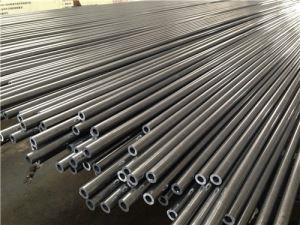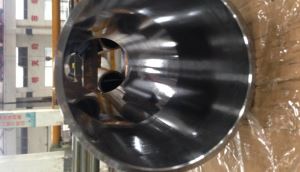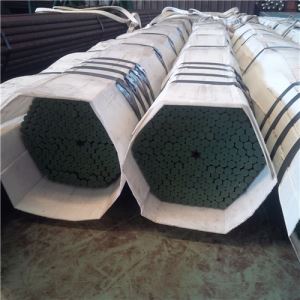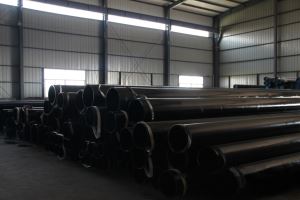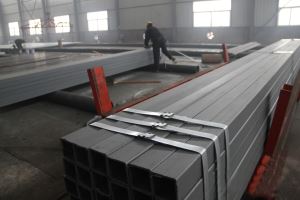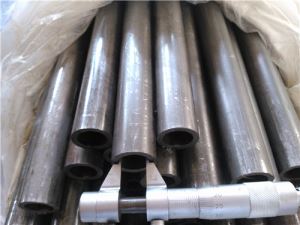Product Categories
Contact Us
Wen zhou boxin steel industry Co., Ltd
Add:4102 Yong Qiang Avenue,Longwan District, Wenzhou. China
Tel:+86-577-86927958
Pho:+8618058896089
Fax:+86-577-86927988
E-mail:info@boxinsteel.com
What is alloy steel pipe? As the name implies, is a collection of metal and non-metallic elements. Because it has high strength, high toughness and wear resistance and other important characteristics, it has also been welcomed by many manufacturers. Here is a little part of the series to introduce to you what is the alloy steel pipe.
One, alloy steel pipe means that except silicon and manganese as alloying elements or deoxidation elements, it also contains other alloying elements (such as chromium, nickel, molybdenum, vanadium, titanium, copper, tungsten, aluminum, cobalt, niobium, zirconium, and other elements), Alloy Steel Pipe and Tube and some are also contained in certain non-metallic elements (such as boron, nitrogen, etc.) of steel. Because of the different kinds and quantities of alloying elements in alloy steel tubes, and taking appropriate technological measures, they can have high strength, toughness, hardenability, abrasion resistance, corrosion resistance, low temperature resistance, heat resistance, heat strength, red hard and so on.
II. alloying elements
The main alloying elements of alloy steel tubes are silicon, manganese, chromium, nickel, molybdenum, tungsten, vanadium, titanium, niobium, zirconium, cobalt, aluminum, copper, boron, Alloy Steel Pipe and Tube rare earth and so on. of which vanadium, titanium, niobium, zirconium in the steel is strong carbide forming elements, as long as there is enough carbon, under appropriate conditions, can form their own carbide, when the lack of carbon or at high temperature conditions, the atom state into solid solution; manganese, chromium, tungsten, Alloy Steel Pipe and Tube molybdenum for the formation of carbide elements, part of the atom into the solid solution, the other part of the formation of replacement alloy cementite, aluminum, copper, nickel, cobalt, silicon and so on is not formed carbide elements, generally in the atomic state in solid solution.
III. Classification
There are a wide variety of alloy steel tubes, which need to be classified for easy production, use and scientific research.
(1) Classification by use, can be broadly divided into: structural steel, mechanical structural steel (in addition to alloy structural steel), Alloy Steel Pipe and Tube but also include alloy spring steel and bearing steel, tool steel (including mold steel and high-speed tool steel) as well as special steel (stainless steel, heat-resistant, leather-free steel, etc.).
(2) According to the total content of alloying elements can be divided into: Low alloy steel pipe (under 5%), Medium alloy steel pipe ($number) and high alloy steel pipe (more than 10%).
(3) According to the main elements of the classification, there are chromium steel, nickel, molybdenum steel, nickel, cr-ni-mo steels.
(4) According to the metallographic structure of alloy steel pipe can be divided into: ferrite Steel, pearlite Steel, bainite Steel, martensitic steel, austenitic steel, Alloy Steel Pipe and Tube and eutectoid and eutectoid, etc.
Alloy steel pipes are widely used in the fields of construction, machinery and tools because of their extensive use. Everyone in the purchase of furniture building materials such as kitchen knives, you can first understand the characteristics of alloy steel pipe, before you can understand the characteristics of the product.
Related News
- ASTM A213 Seamless Stainless Steel Pipe/Tube...
- 50X50mm Hot-Dipped Galvanized Square Steel Pipe/Square Welde...
- Stainless Steel Tube for Weld Pipes...
- Stainless Steel Tube Purchase Skills...
- Alloy Steel Pipe High Temperature...
- Elbow Of Buying Skills...
- Stainless Steel Tubes Have Antioxidant Properties...
- Alloy Steel Tube Has Low Temperature Resistance Characterist...
- Excellent Performance Of Reducer...
- Carbon 40mm Seamless Steel Pipe /Tube...
 Blue
Blue  info@boxinsteel.com
info@boxinsteel.com 









